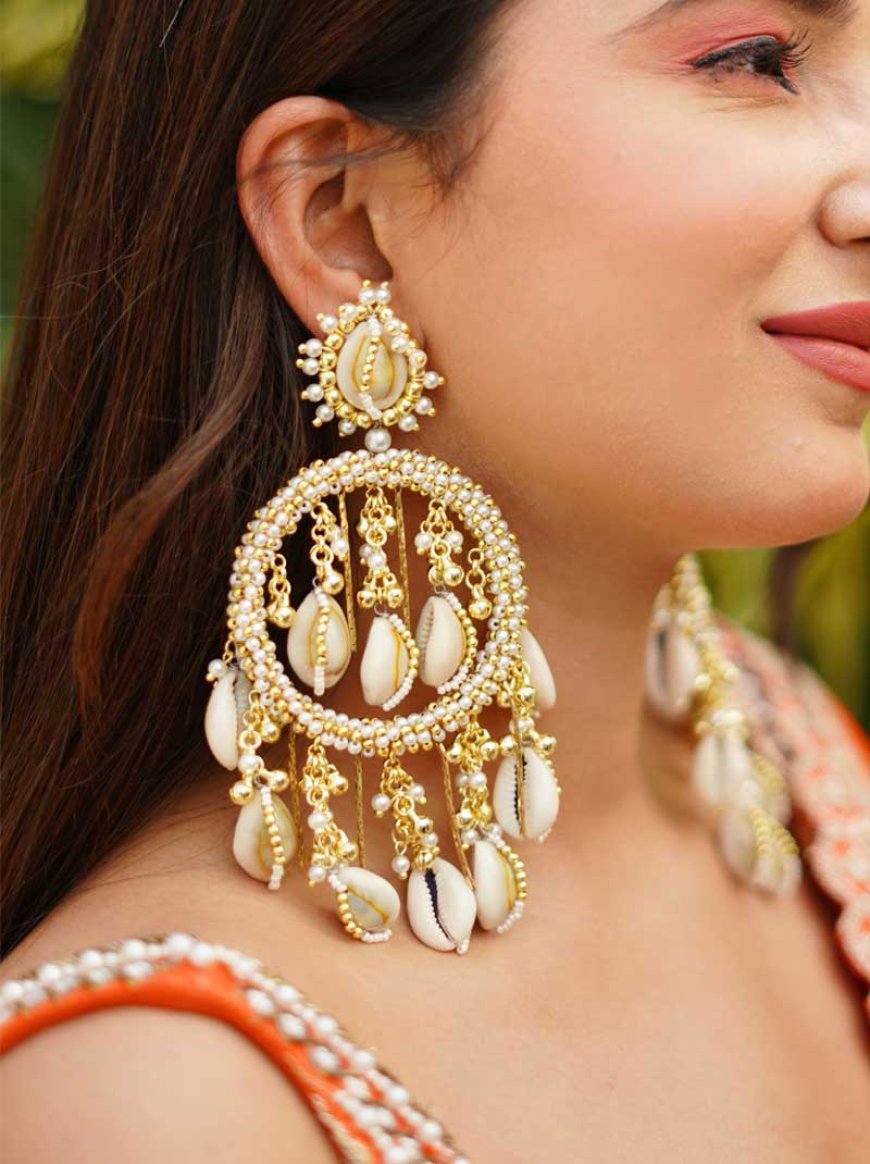Traditional Jewellery: The Soul of Indian Craft and Culture
In India, jewellery has always been meaningful in many ways, showing tradition, heritage, identity and grace. Traditional jewellery which is handed down through the generations, builds a connection to our past.

In India, jewellery has always been meaningful in many ways, showing tradition, heritage, identity and grace. Traditional jewellery which is handed down through the generations, builds a connection to our past. Wearing a gold necklace or earrings, no matter the situation, always holds some sort of meaning for someone.
Nowadays, young people are rediscovering their cultural past by adopting traditional jewellery and mixing it with recent trends. Indian women are choosing to wear traditional gold jewelry or creative shell and handmade works as they celebrate their roots.
The Rich Legacy of Indian Jewellery
Seven millennia ago, India became involved with the world of jewellery. Archeologists discovered the earliest gold, silver, beads and stone ornaments during Indus Valley Civilization excavations. After that, jewellery changed and became central to Indian culture and heritage.
Handmade Jewellery: Artistry Beyond Mass Production
Because machines mainly take over in manufacturing, handmade jewellery reminds us of tradition, sustainability and skill. Skilled artisans usually make handmade pieces using approaches and tools they learned from their ancestors.
The task calls for great care while working on each detail. The crafting process for each piece of handmade jewellery takes many hours or even days, because of the dedicated work involved. Looking at an ornament is about more than its appearance; it’s about its background, cultural links and the relationship between the person and the ornament.
It’s very special that handmade jewellery is not the same as anything you can find in a shop. There is diversity among pieces of music. Imperfections and uniqueness give life and beauty to any Indian silver bangle or tribal bead necklace.
Shell and Seashell Jewellery: Nature’s Artistic Offering
Instead of using metals and gems, shell jewellery and seashell jewellery give a touch of natural beauty that is stylish and easy on the environment. Shell jewellery is linked with purity, femininity and beauty of the ocean in coastal India, with people using them for centuries.
Why Traditional Jewellery Appeals to the Modern Woman
Indian women these days are assured, independent and knowledgeable about fashion. They like to follow current trends, yet respect the old customs of their culture. I can see modern and traditional values reflected in the jewellery choices of today’s young people.
How to Choose the Right Traditional Jewellery
Having all these types of jewellery makes it hard to make a choice sometimes. These tips will assist you in selecting the right insurance.
- Weddings are the right time to choose thick gold or Kundan jewels. Keep handmade jewellery or seashell accessories in mind for everyday or easy-going wear.
- Pick Designs That Reflect Who You Are—Cool, Beautiful, Classy, Simple or with a Fashion Touch.
- Blend Mix Materials: Allowing metal, shells or beads to mingle in your jewelry designs. Trying different textures can give your outfit a lot more style and interest.
-
When you support local vendors and artisans, you strengthen India’s tradition in crafts.
Conclusion
Traditional jewellery is valued for its sparkle and also the soul it carries. It demonstrates our creativity, traditions and who we are. Putting on a gold necklace at your wedding, accessorizing with handmade jewellery on a routine day or jewellery made from shells while travelling makes you a storyteller as well.
Traditional jewellery does not change with the fast-moving trends because it remains popular among different generations. It is still cherished as a symbol of female attractiveness, charm and culture.









































































